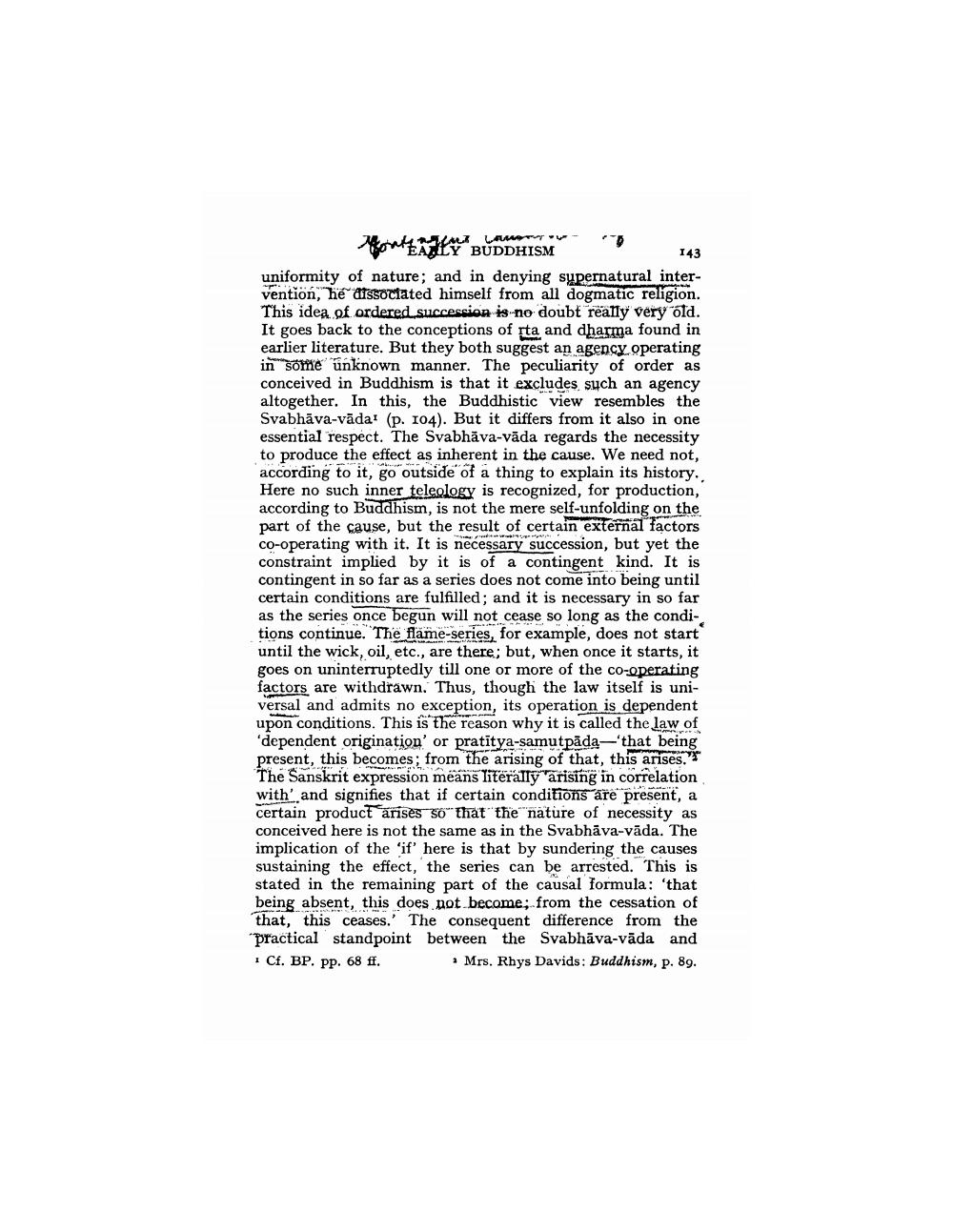________________
LLAL LAM
y-- KontEALY BUDDHISM
-
143 uniformity of nature, and in denying supernatural intervention, he dissociated himself from all dogmatic religion. This idea of ordered succession is no doubt really very old. It goes back to the conceptions of rta and dharma found in earlier literature. But they both suggest an agency operating in some unknown manner. The peculiarity of order as conceived in Buddhism is that it excludes such an agency altogether. In this, the Buddhistic view resembles the Svabhāva-vāda' (p. 104). But it differs from it also in one essential respect. The Svabhāva-vāda regards the necessity to produce the effect as inherent in the cause. We need not, according to it, go outside of a thing to explain its history. Here no such inner teleology is recognized, for production, according to Buddhism, is not the mere self-unfolding on the part of the cause, but the result of certain external factors co-operating with it. It is necessary succession, but yet the constraint implied by it is of a contingent kind. It is contingent in so far as a series does not come into being until certain conditions are fulfilled; and it is necessary in so far as the series once begun will not cease so long as the conditions continue. The flame-series, for example, does not start until the wick, oil, etc., are there; but, when once it starts, it goes on uninterruptedly till one or more of the co-operating factors are withdrawn. Thus, though the law itself is universal and admits no exception, its operation is dependent upon conditions. This is the reason why it is called the law of 'dependent origination' or pratītya-samutpäda.-'that being present, this becomes; from the arising of that, this arises." The Sanskrit expression means literally arising in correlation with' and signifies that if certain conditions are present, a certain product arises so that the nature of necessity as conceived here is not the same as in the Svabhāva-vāda. The implication of the 'if' here is that by sundering the causes sustaining the effect, the series can be arrested. This is stated in the remaining part of the causal formula: 'that being absent, this does not become; from the cessation of that, this ceases. The consequent difference from the Practical standpoint between the Svabhāva-vāda and
Cf. BP. Pp. 68 ff. * Mrs. Rhys Davids: Buddhism, p. 89.




